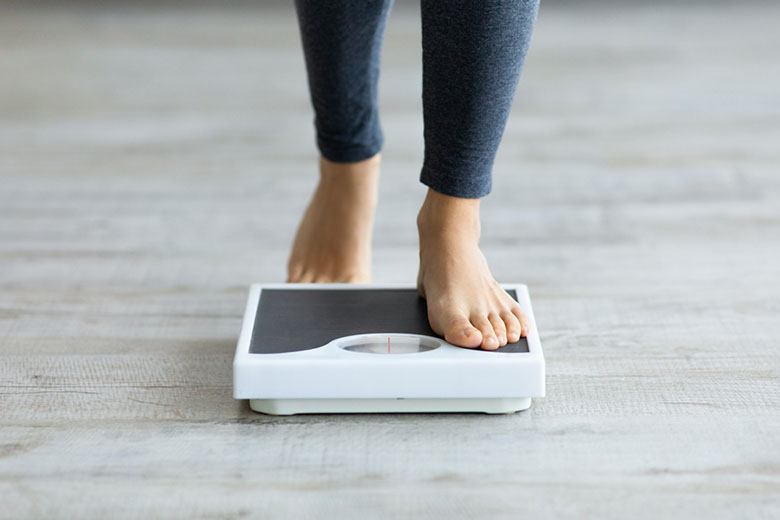Gaining weight during menopause is a frustrating and often discouraging experience. It’s hard enough to deal with the other symptoms of menopause, such as hot flashes, night sweats, and mood swings. But when you add in the challenge of trying to manage your weight, it can feel downright impossible.
There are a lot of debates out there about why women gain weight during menopause. Some people think it’s because of hormone changes, others believe it’s due to a slower metabolism, and, still, some chalk it up to lifestyle and habit shifts. While there is truth to all of those theories, the honest answer is more complex. Together, we’ll explore the role of hormones in menopause weight gain and what you can do to manage your weight during this challenging time.
Take Control of Menopause Weight Gain
There’s no doubt that hormone changes play a role in menopausal weight gain. As women approach menopause, their levels of essential hormones begin to decline. This hormone imbalance can lead to changes in appetite, metabolism, and even body composition.
Estrogen
Estrogen is a hormone that is produced by the ovaries. It plays a vital role in regulating the menstrual cycle and preparing the body for pregnancy. During menopause, estrogen levels begin to decline, which can cause several changes in the body. These changes can include hot flashes, night sweats, and difficulty sleeping. In addition, lower estrogen levels can contribute to weight gain. The reason for this is that estrogen helps to regulate metabolism and prevent the accumulation of fat cells. Therefore, when estrogen levels decline, the body may have trouble burning calories, leading to weight gain.
Progesterone
Progesterone is also produced by the ovaries. Its main function is to prepare the uterus for pregnancy, but it also plays a role in regulating the menstrual cycle. During menopause, progesterone levels drop sharply, which can cause various symptoms, including hot flashes, night sweats, and vaginal dryness. Additionally, lower progesterone levels can contribute to weight gain because progesterone helps to regulate metabolism and appetite. Therefore, a slower metabolism and increased or uncontrolled appetite can lead to weight gain.
Estrogen and Progesterone as a Team
Estrogen and progesterone work together to keep blood sugar levels stable. However, when estrogen and progesterone levels drop during menopause, this can cause fluctuations in blood sugar levels, further contributing to weight gain.
Safe, Easy, and Confidential Hormone Testing at Home
Tips for Managing Menopausal Weight Gain
So what does this all mean for you? First, if you’re struggling with menopausal weight gain, it’s important to understand that hormones are likely playing a role. But don’t worry — there are things you can do to manage your weight during this time.
1. Stay Active
Exercise is one of the best ways to manage your weight, no matter your life stage. But it’s especially important during and after menopause. Regular exercise helps boost metabolism, build muscle mass, and reduce stress levels, which can help with weight management. Aim for 30 minutes of moderate-intensity exercise five days a week and some muscle-strengthening activities twice a week.
2. Healthy Eating Habits
A healthy diet is also crucial for managing your weight during menopause. Focus on eating plenty of fruits, vegetables, lean protein, and whole grains. Avoid processed foods, sugary drinks, and excessive amounts of saturated and unhealthy fats. If you’re having trouble with cravings or figuring out what foods work best for you, consider consulting a registered dietitian. They can help you create a healthy eating plan tailored to your unique needs and goals.
3. Hormone Therapy
For some women, hormone therapy may be an option for managing menopausal symptoms — including weight gain. It can sound intimidating and complicated, but it doesn’t have to be. Believe it or not, hormone imbalance testing can be done from the comfort of your home. Opting for bioidentical hormone replacement therapy can also provide more personalized and effective results.
Final Thoughts
Menopausal weight gain is a frustrating but common problem facing many women today. While hormones certainly play a role in weight gain during this time, don’t forget that there are things you can do to manage your experience during this transitional period. Through regular exercise, maintaining a healthy diet, and hormone therapy, you can successfully take control of your menopausal weight gain.
If you are struggling with excess weight gain, speak to one of our qualified healthcare providers today to discuss your options for hormone therapy. Our at-home hormone testing kit can also help you better understand your current hormone levels and how they may impact your health.
Take the guesswork out of menopause and start your journey to better health today.

